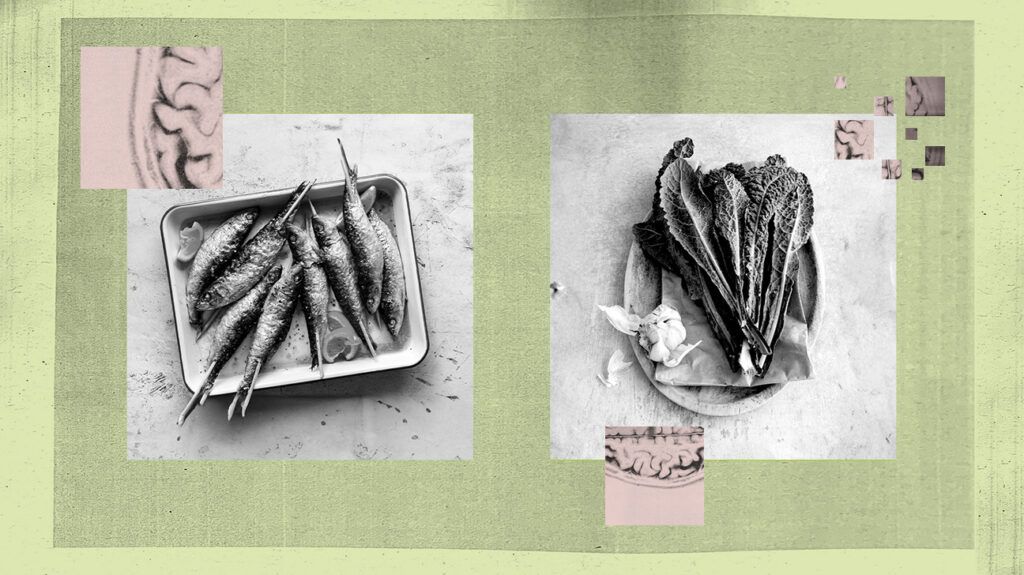Although there is no cure for dementia, a balanced, nutritious diet may help lower someone’s risk of developing dementia or delay its progression. Further research is necessary to understand the full role diet may play.
The Centers for Disease Control and Prevention (CDC) estimates that dementia may affect around
There is no single food that will prevent dementia. However, certain lifestyle choices, such as exercising regularly and eating a balanced diet, may reduce a person’s risk of developing dementia.
This article lists several foods that can benefit brain health, which a person could include in a balanced diet to reduce the risk of dementia.

While there is no definitive cure for dementia, certain dietary choices and lifestyle factors may play a role in reducing the risk of developing dementia or slowing its progression.
Preventing dementia is a complex issue and involves
Fatty fish are excellent
According to a 2021 article, DHA, in particular, may be vital for brain function and cell growth. Regularly consuming fatty fish may support brain function and
Learn more about the benefits of omega-3 fatty acids.
Leafy greens contain antioxidants, vitamins, and minerals that
For example, a
The
Berries are rich in antioxidants, including flavonoids, which may help protect the brain from oxidative stress and inflammation.
A 2020 systematic review examines some research that suggests regular consumption of blueberries may improve cognitive function and delay age-related cognitive decline. However, the authors highlight the need for more research.
Nuts are a great
A
The combination of healthy fats and antioxidants in nuts may make them a valuable addition to a brain-healthy diet.
Turmeric contains curcumin, an active compound
A 2018 article suggests that curcumin
Whole grains provide complex carbohydrates that release glucose gradually, providing a steady energy supply to the brain. This can help improve short and long-term memory and brain aging.
A
Avocados are a source of healthy monounsaturated fats, which
A
Lean protein sources are essential for brain function because they provide amino acids, which are
The Alzheimer’s Association recommends including lean protein as part of a balanced diet.
This high quality oil is a staple of the Mediterranean diet, which studies associate with
Rich in monounsaturated fats and antioxidants, it
Dark chocolate
Green tea is
Staying well-hydrated is
Excessive consumption of some foods may negatively affect cognitive function. These foods include:
- Alcohol: Excessive alcohol consumption can
harm the brain and affect cognitive function. - Sugary drinks:
Some research suggests that artificial sweeteners in soda and other drinks may adversely affect brain health. - Red meat: While lean cuts of red meat can be part of a balanced diet, some research associates excessive consumption of red and processed meats with reduced cognitive function.
- Ultra-processed foods: These foods may contain additional salt, sugars, and fats and
may increase the risk of dementia.
If someone is concerned about dementia or cognitive decline, they should speak with a healthcare professional, especially if they experience symptoms or have risk factors.
Regular check-ups with a doctor can help
Some
- memory problems
- changes in cognitive function
- behavioral or personality changes
- difficulty with activities of daily living
- impulsivity
- falls or accidents
There is no single food that will prevent or treat dementia. However, reducing or avoiding certain foods and incorporating brain-boosting foods into a balanced diet can contribute to a lower risk of dementia.
People can also take other lifestyle measures to improve cognitive function and overall health, such as regular exercise or stress relief techniques, including meditation and deep breathing.
People should speak with a healthcare professional if they are concerned that they or someone else is showing signs of cognitive decline or dementia.
